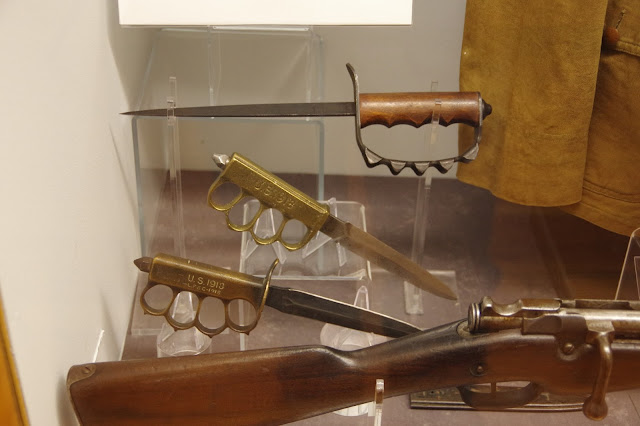Memorials at the Sundance Wyoming Rest Stop.
I usually don't put a bunch of memorials, even at one single spot, in one single post. Each, I generally feel, deserves its own post as each is its own topic, in terms of what it commemorates.
Black Hills Sign at the Sundance Wyoming Rest Stop.
I'm making an exception here, however, as these are grouped so nicely, they seem to require a singular treatment.
The first item we address is the Black Hills sign. This sign discusses the Black Hills, which straddle the Wyoming/South Dakota border.
Crook County sign.
The second sign discusses Crook County, named after Gen. George Crook, and in which Sundance is situated.
The sign oddly doesn't really go into Crook himself, but then its a memorial for the county, not the general. Still a controversial general, Crook came into this region in the summer campaign of 1876 which saw him go as far north as southern Montana before meeting the Sioux and Cheyenne at Rosebud several days prior to Custer encountering them at Little Big Horn. Crook engaged the native forces and then withdrew in a move that's still both praised and condemned. At the time of the formation of Crook County in 1888 he was sufficiently admired that the county was named after him, at a time at which he was still living.
Custer Expedition Memorial.
Finally, the Rest Stop is the location of an old monument noting the passage of Custer's 1874 expedition into the Black Hills, which is generally regarded as the precursor of the European American invasion of the Black Hills and the Powder River Expedition of 1876. Obviously, it's more complicated than that, but its safe to say that the discovery of gold in 1874 gave way to a gold rush which, in turn, made conflict with the Sioux, who had taken over the Black Hills (by force) from the Crow, inevitable.

This memorial is interesting in the super heated atmosphere of today given that the historical view has really changed since 1940, when this roadside monument was dedicated (surprisingly late, I'd note, compared to similar Wyoming monuments). In 1940 Custer was still regarded as a hero. By the 1970s, however, he was regarded in the opposite fashion, by and large, at least in terms of his popular portrays are concerned. The 1874 expedition into the Black Hills is not favorably recalled in history now at all.
I have to wonder, however, in terms of the history if this expedition changed history the way it is recalled. The Black Hills always seem to be an attractant. They attracted the Sioux who took them (in living memory in 1874) from the Crows and it seems highly likely that they would would have attracted European Americans as well. Certainly they continued to even after the hopes of gold seekers were dashed.











































































